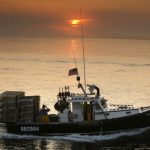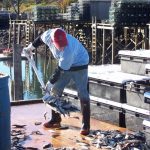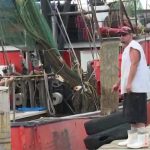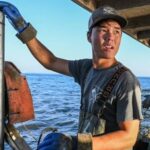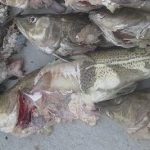Tag Archives: Dr. Brian Rothschild
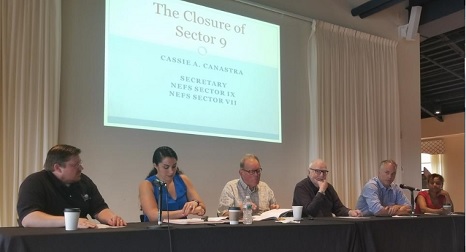
Held Hostage: New Bedford Fishermen, Businesses losing out while waiting on NOAA
“If something doesn’t happen with groundfishing soon, it’s gone,” general manager of Hercules SLR John Reardon said. NOAA implemented the ban Nov.20 and has continued because of an overage calculated at 72,000 pounds of grey soul, according to multiple people who spoke Monday evening. The overage represents the amount of fish calculated by NOAA that Carlos Rafael misreported. He is serving a 46-month prison sentence, but the NOAA punishment aspect has held many along the waterfront hostage. >click to read<10:27
Many fishermen believe Stokesbury saved the scallop industry
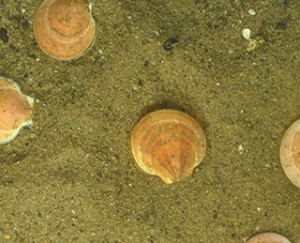 Well, I guess that I had better start writing some of this stuff down, as it seems that my memory is getting fuzzier by the day. Not an uncommon affliction for an old fisherman, who has been put ashore, but who still has enough recall to remember some things that are just too important to allow to fade into obscurity! I had been a scalloper out of New Bedford for 32 years, both as a deckhand, and as a captain of several high-line scalloper vessels. Over all those years there were several trips that stay relatively fresh in my mind’s eye, but one of the most important and fulfilling ones actually occurred after I came ashore. By Jim Kendall click here to read the story 21:55
Well, I guess that I had better start writing some of this stuff down, as it seems that my memory is getting fuzzier by the day. Not an uncommon affliction for an old fisherman, who has been put ashore, but who still has enough recall to remember some things that are just too important to allow to fade into obscurity! I had been a scalloper out of New Bedford for 32 years, both as a deckhand, and as a captain of several high-line scalloper vessels. Over all those years there were several trips that stay relatively fresh in my mind’s eye, but one of the most important and fulfilling ones actually occurred after I came ashore. By Jim Kendall click here to read the story 21:55
SMAST wins patent on 3D counting, measuring fish on deck of a boat
 A newly patented 3-D photograph system developed at the UMass Dartmouth School for Marine Science and Technology soon may greatly add to scientists’ knowledge about ocean fish populations, the school announced Tuesday. The device, the work of now-retired dean Dr. Brian Rothschild and graduate student Glenn Chamberlain, includes two digital cameras and a reference frame. Using a common technique called stereo photogrammetry, the device essentially uses 3-D images to map the surface of the fish. The reference frame will permit the monitoring not only of the number of fish, but their size. The fish can be on the deck, or in a net, and the data obtained can be stored permanently, Rothschild said. “The concept is very simple,” Rothschild said, and the parts are easily obtainable commercially; the two cameras cost about $500, he said. “We built one and it did work,” he said. Read the rest here 20:32
A newly patented 3-D photograph system developed at the UMass Dartmouth School for Marine Science and Technology soon may greatly add to scientists’ knowledge about ocean fish populations, the school announced Tuesday. The device, the work of now-retired dean Dr. Brian Rothschild and graduate student Glenn Chamberlain, includes two digital cameras and a reference frame. Using a common technique called stereo photogrammetry, the device essentially uses 3-D images to map the surface of the fish. The reference frame will permit the monitoring not only of the number of fish, but their size. The fish can be on the deck, or in a net, and the data obtained can be stored permanently, Rothschild said. “The concept is very simple,” Rothschild said, and the parts are easily obtainable commercially; the two cameras cost about $500, he said. “We built one and it did work,” he said. Read the rest here 20:32
At Asia-Pacific summit, Kerry gives wrong advice for world’s fisheries
 But Secretary Kerry gets some key facts wrong here. For one, most of the fisheries of the world are not overfished. In 2014, the UN Food and Agriculture Organization (FAO) placed that number at 29 percent, and reported that approximately 70 percent of the stocks that they assessed were being fished within biologically sustainable levels. If the U.S. is going to promote sustainability worldwide, it should acknowledge current management successes. Read the rest here 12:35
But Secretary Kerry gets some key facts wrong here. For one, most of the fisheries of the world are not overfished. In 2014, the UN Food and Agriculture Organization (FAO) placed that number at 29 percent, and reported that approximately 70 percent of the stocks that they assessed were being fished within biologically sustainable levels. If the U.S. is going to promote sustainability worldwide, it should acknowledge current management successes. Read the rest here 12:35
Can Regulations Help a Man Learn to Fish? Kissing boss Bloomberg’s ass?
(James Greiff’s boss just granted $56 million to increase fish stocks in Brazil, Chile and the Philippines.) There probably isn’t a lament repeated more often by small business owners than the complaint that government regulation is strangling them. Maybe there’s some truth to this, and yet what sometimes goes missing is the corollary: Without regulations, some of those businesses might not survive. The latest example comes from a New Bedford, Massachusetts, commercial fisherman who told Fox News that limits on how many fish can be hauled from U.S. coastal waters will be the ruin of the domestic industry. Be sure to click the links! Read more@bloomberg.com 19:41
MSA – National Workshop Invitation in Seattle from Dr. Brian Rothschild, Center for Sustainable Fisheries President and CEO
 Dear Friend, On behalf of the Center for Sustainable Fisheries (CSF) and the National Fisherman I would like to invite you to a public workshop on reauthorizing the Magnuson-Stevens Act (MSA) at the Renaissance Hotel in Seattle at 12:30 pm on Tuesday, February 11, 2014. Our workshop is scheduled just after the Pacific Council meeting to be convenient for those attending the Council meeting. As you know, the MSA is up for reauthorization this year. Several months ago there was a general feeling that the existing law would be changed very little. This would constrain fisheries-management improvements that would arise from the new language. Read more here 22:22
Dear Friend, On behalf of the Center for Sustainable Fisheries (CSF) and the National Fisherman I would like to invite you to a public workshop on reauthorizing the Magnuson-Stevens Act (MSA) at the Renaissance Hotel in Seattle at 12:30 pm on Tuesday, February 11, 2014. Our workshop is scheduled just after the Pacific Council meeting to be convenient for those attending the Council meeting. As you know, the MSA is up for reauthorization this year. Several months ago there was a general feeling that the existing law would be changed very little. This would constrain fisheries-management improvements that would arise from the new language. Read more here 22:22
A top NOAA fisheries scientist has proposed dramatic change in yellowtail flounder stock assessments

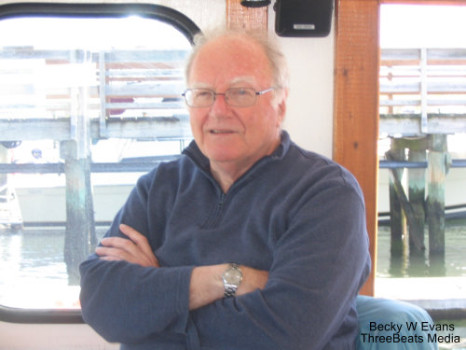 NEW BEDFORD — A top NOAA fisheries scientist has proposed a dramatic change in the way the agency makes its stock assessments for yellowtail flounder. The proposal by Dr. William Karp, director of the Northeast Regional Science Center, embraces the view of Dr. Brian Rothschild, professor emeritus at UMass Dartmouth. It reduces the reliance on statistical models that have proven unreliable and inadequate, instead calling on NOAA to employ additional data and information that it previously wouldn’t consider. Read more@southcoasttoday 19:36
NEW BEDFORD — A top NOAA fisheries scientist has proposed a dramatic change in the way the agency makes its stock assessments for yellowtail flounder. The proposal by Dr. William Karp, director of the Northeast Regional Science Center, embraces the view of Dr. Brian Rothschild, professor emeritus at UMass Dartmouth. It reduces the reliance on statistical models that have proven unreliable and inadequate, instead calling on NOAA to employ additional data and information that it previously wouldn’t consider. Read more@southcoasttoday 19:36
Our View: Complex fisheries need the best minds

 The New England groundfishery is a disaster. Conservationists know it, the federal government knows it, processors, shipyards and supply houses know it. And nobody knows it like fishermen do. The source of the disaster can be summed up in a word: Complexity. Around every corner in the quest to manage the groundfishery lurks another tangled issue. Fishery managers declare catch limits that are little better than arbitrary because our definitions of overfishing are at odds, a condition created by murky, imprecise language in the Magnuson-Stevens Fishery and Conservation Management Act, further complicated by the inability to agree on the size of the fishery, its relative vitality, the impact of warming and acidifying oceans, the number of fish versus the size of the fish, the role of economics and management mechanisms “¦ you get the idea. Dr. Brian Rothschild points out in the policy paper,,Read more@southcoasttoday 09:31
The New England groundfishery is a disaster. Conservationists know it, the federal government knows it, processors, shipyards and supply houses know it. And nobody knows it like fishermen do. The source of the disaster can be summed up in a word: Complexity. Around every corner in the quest to manage the groundfishery lurks another tangled issue. Fishery managers declare catch limits that are little better than arbitrary because our definitions of overfishing are at odds, a condition created by murky, imprecise language in the Magnuson-Stevens Fishery and Conservation Management Act, further complicated by the inability to agree on the size of the fishery, its relative vitality, the impact of warming and acidifying oceans, the number of fish versus the size of the fish, the role of economics and management mechanisms “¦ you get the idea. Dr. Brian Rothschild points out in the policy paper,,Read more@southcoasttoday 09:31
A giant in fisheries science steps aside (and into the forefront!)
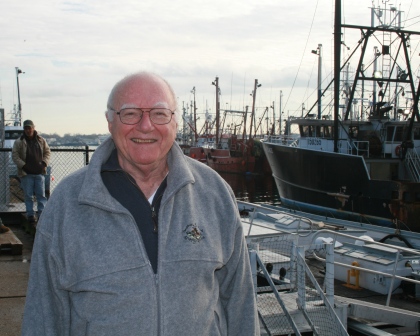 Some 200 friends, colleagues and well-wishers gathered at the Century House in Acushnet, MA, on Friday, October 18, to celebrate the remarkable career of distinguished fishery scientist and lifelong friend of the fishing industry, Dr. Brian Rothschild . more@umassd.edu 12:01
Some 200 friends, colleagues and well-wishers gathered at the Century House in Acushnet, MA, on Friday, October 18, to celebrate the remarkable career of distinguished fishery scientist and lifelong friend of the fishing industry, Dr. Brian Rothschild . more@umassd.edu 12:01
Speaking of Dr. Brian Rothschild,,,

In addition to the news of he and fellow Patent applicant Glenn Chamberlain filing to the Patent and Trademark office, Dr. Rothschild, Emily F. Keiley, and Yue Jiao had a paper published at the ICES Journal of Marine Science, “Failure to eliminate overfishing and attain optimum yield in the New England groundfish fishery”. I’ve made a pass through it, and it is a fascinating read. If you follow New England fishery issues, you must review it. Read the report here 10:46
Now this, THIS is exciting!!! Former Mayor Scott Lang forming watchdog group – Dr. Brian Rothschild slated to be executive director
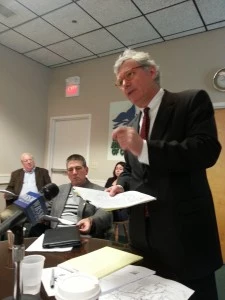
 NEW BEDFORD — Former Mayor Scott Lang is taking aim at NOAA fisheries as he organizes a nonprofit to serve as a watchdog and a counterweight to an agency he for years has said has spun out of control. The organization has no name and Lang isn’t saying who will be part of it. But he said he wants scientists, lawyers, fishermen and other industry players who feel that they’ve been pushed aside as the National Oceanic and Atmospheric Administration does its business. continued@southcoasttoday
NEW BEDFORD — Former Mayor Scott Lang is taking aim at NOAA fisheries as he organizes a nonprofit to serve as a watchdog and a counterweight to an agency he for years has said has spun out of control. The organization has no name and Lang isn’t saying who will be part of it. But he said he wants scientists, lawyers, fishermen and other industry players who feel that they’ve been pushed aside as the National Oceanic and Atmospheric Administration does its business. continued@southcoasttoday
‘Those who are up top are the ones who are winning’
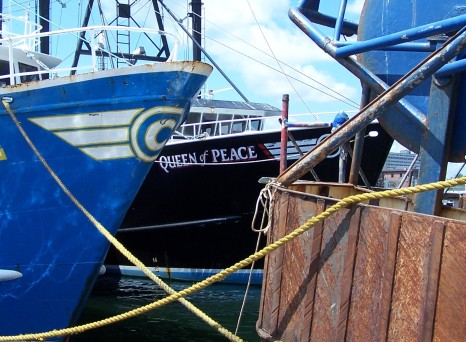 NEW BEDFORD — While not yet feeling the force of new regulations, fishermen in Southern New England are worried about the effects the new regulations will have on their livelihoods this year. For those working the high seas, the new rules are causing problems.“The problem is that for fishermen it’s a black and white issue,” said Dr. Brian Rothschild, former Dean of the UMass School for Marine Science and Technology. “The regulations are grayer than fishermen need them to be.” continued@ojournal
NEW BEDFORD — While not yet feeling the force of new regulations, fishermen in Southern New England are worried about the effects the new regulations will have on their livelihoods this year. For those working the high seas, the new rules are causing problems.“The problem is that for fishermen it’s a black and white issue,” said Dr. Brian Rothschild, former Dean of the UMass School for Marine Science and Technology. “The regulations are grayer than fishermen need them to be.” continued@ojournal
Bycatch alert system growing for fourth year
![]() NEW BEDFORD — New fishing grounds are being added to the highly successful system developed by UMass to avoid catching yellowtail flounder in the Northeast, it was announced Wednesday. Dr. Brian Rothschild, dean emeritus of the UMass School for Marine Science and Technology, said the program “has reduced the ratio of yellowtail to scallops and because of that it has been an economic boon to the fishery.” Read more here
NEW BEDFORD — New fishing grounds are being added to the highly successful system developed by UMass to avoid catching yellowtail flounder in the Northeast, it was announced Wednesday. Dr. Brian Rothschild, dean emeritus of the UMass School for Marine Science and Technology, said the program “has reduced the ratio of yellowtail to scallops and because of that it has been an economic boon to the fishery.” Read more here
Your View: UMD administration needs to explain changes at SMAST – southcoasttoday.com
Prior to that event and the arrival of Dr. Brian Rothschild and his associates, the domestic fishing industry was subjected to the science used for assessing fishing stock sizes and their use in fishing conservation plans. The law called for the fishery management councils to use the best available scientific information, and in the days before SMAST that meant that whatever the National Marine Fisheries determined to be the proper approach was indeed the gospel. Fishermen and the industry generally were put through management measures that not only didn’t make sense but ended up killing millions of pounds of seafood product, fish and scallops, subjected vessels to huge fines and loss of vessels, and resulted in a highly confrontational relationship between industry and government. Read More
Appoint Dr. Brian Rothschild as the new National Oceanic and Atmospheric Administration Administrator.
Dr. Jane Lubchenco is stepping down from her position as the NOAA Administrator. We the People who are directly impacted by NOAA policies would like President Obama to appoint Dr. Brian Rothschild to replace her as head of the National Oceanic and Atmospheric Administration. Thank you for your consideration of our petition. https://petitions.whitehouse.gov/petition/appoint-dr-brian-rothschild-new-national-oceanic-and-atmospheric-administration-administrator-thank/YXFDxF0q#thank-you=p
Fisherynation Editorial – The Politcal Purging of Dr. Brian Rothschild. What is the Real Reason?
 Dr. Brian Rothschild a world-renown fisheries researcher and author, Dean Emeritus of Marine Fisheries Institute, has been removed from his co-directorship of the Institute which he founded and developed over the past ten years. This move by the UMass president’s office will place the Institute under the control of the president’s office and the Institute’s co-directorship will go to the current School of Marine Science and Technology Dean, Dr. Steve Lohrenz, a champion of President’s Obama’s controversial National Ocean Policy and a former Vice-Chair of the Consortium for Ocean Leadership which partners with Integrated Ocean Drilling Program (a program devoted to deep ocean geology exploration associated with oil and gas production) .
Dr. Brian Rothschild a world-renown fisheries researcher and author, Dean Emeritus of Marine Fisheries Institute, has been removed from his co-directorship of the Institute which he founded and developed over the past ten years. This move by the UMass president’s office will place the Institute under the control of the president’s office and the Institute’s co-directorship will go to the current School of Marine Science and Technology Dean, Dr. Steve Lohrenz, a champion of President’s Obama’s controversial National Ocean Policy and a former Vice-Chair of the Consortium for Ocean Leadership which partners with Integrated Ocean Drilling Program (a program devoted to deep ocean geology exploration associated with oil and gas production) .
The stated reasons for Brian Rothschild’s removal are at best flimsy and at worst they are a Kafkaesque rationale for a political purge.
“… it lacked an oversight board, a budget and annual reports and it wasn’t coordinated well enough to solicit research grants from industry, government and other institutions, said university spokesman John Hoey.”
Really? After ten successful years this Marine Fisheries Institute now isn’t coordinated well enough to get research grants? Grants coming from industry, government, and OTHER INSTITUTIONS. Now who might they be? Could it be Pew or perhaps EDF/CLF/NOAA or the Dept. of the Interior?
Dr. Rothchild’s professional status now, for some reason, isn’t high enough to be co-director of the Institute he founded and has been dean of for many years?
“It’s appropriate that the co-director needs to be a dean or someone of that administrative level,” he [Hoey] said.
Brian Rothschild has forgotten more about fisheries science than entire science departments at government and “other institutions” will ever know. He has used integrity and common sense in his work (rare commodities in the circus of fisheries science). He has benefited fishing enormously, keeping this vital local clean-food producing industry from the clutches of the ignorant faux science of self-serving bureaucrats and corrupt plutocracy-spawned NGO’s.
Dr. Brian J. Rothschild, Dean of the School for Marine Science and Technology (SMAST) of the University of Massachusetts at Dartmouth, has been presented with the 2011 Oscar Elton Sette Award.
That would seem to qualify Brian Rothschild as “…a dean or someone of that level”, wouldn’t it?
Soas the nuisance local fishing industry is systematically dismantled to make way for the energy industry’s March Into The Sea, it is no surprise that one of the fishing industry’s most enlightened intellectuals would be removed and the Institute that he brought to prominence revamped.






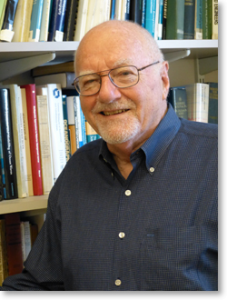 There have been basically two approaches to the current reauthorization. One leaves the language of the act as is, the other makes changes.,, The substance of the 1996 reauthorization was driven by a burgeoning political influence of conservation groups. The act was moved from simply defined principles of fisheries management, such as estimating maximum sustained yield to avoid overfishing, to concepts like “rebuilding” stocks that were thought to be overfished, and to protecting the “environment” thought to be degraded by fishing.
There have been basically two approaches to the current reauthorization. One leaves the language of the act as is, the other makes changes.,, The substance of the 1996 reauthorization was driven by a burgeoning political influence of conservation groups. The act was moved from simply defined principles of fisheries management, such as estimating maximum sustained yield to avoid overfishing, to concepts like “rebuilding” stocks that were thought to be overfished, and to protecting the “environment” thought to be degraded by fishing. 




























